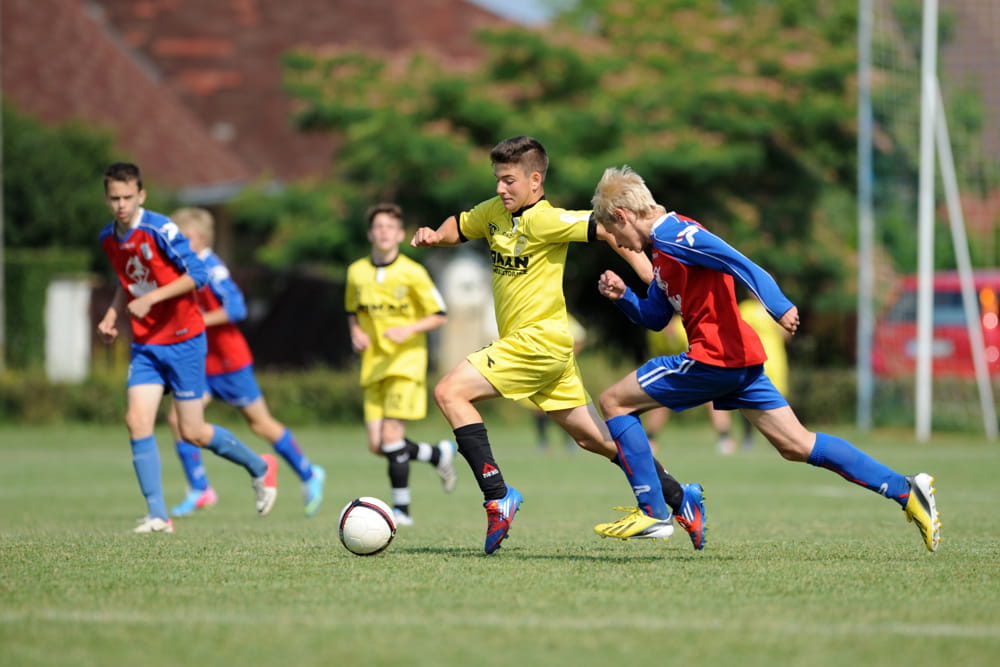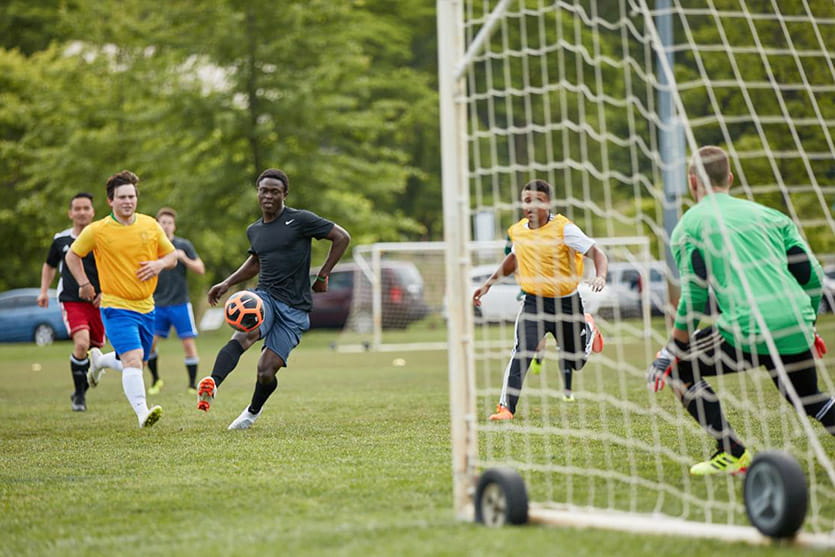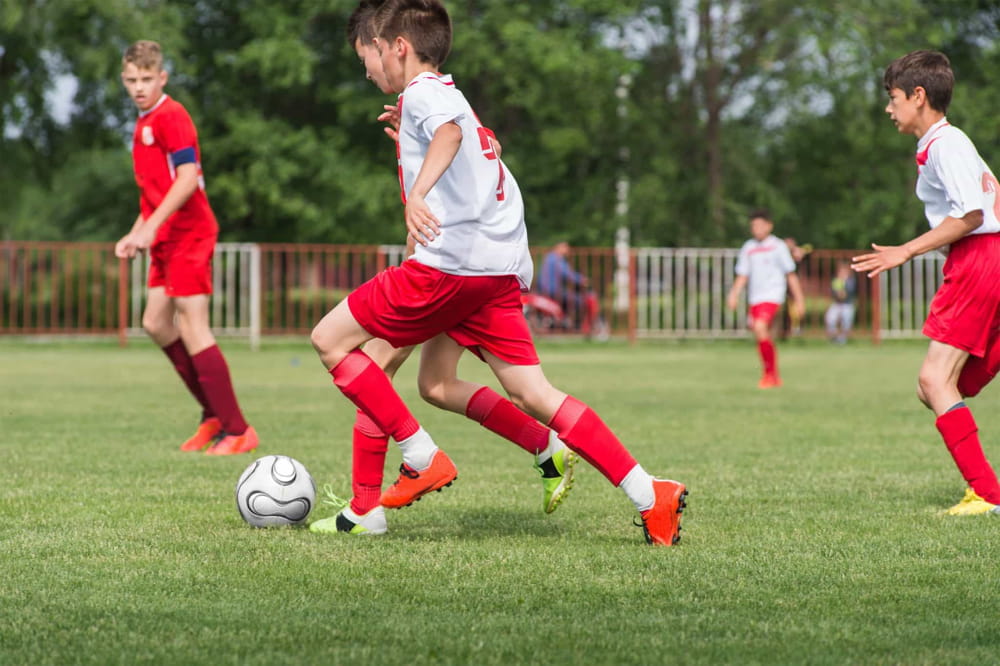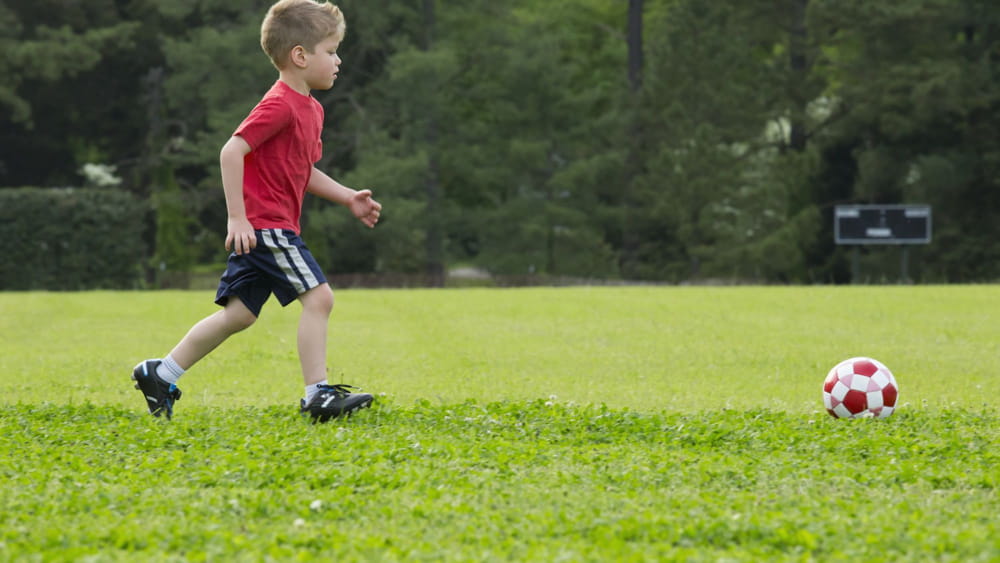Soccer is one of the world’s most famous games and this explains why more and more people want to learn to play soccer. People often tend to question as to where and how they can learn to play soccer. The answer is actually very simple, as it can be learned from the comfort of your home!
Young people or adults alike can play soccer and it is a great way of socializing with friends. Nonetheless, playing soccer requires some skills so new players need to master the basics before joining a match.
Today, we are bringing to you a complete guide on playing soccer for beginners but before that, let’s have a look at some basic rules and principles of this sport as well as what you need to begin with playing the game, so let us get into things one by one below:
Soccer Game Basics
Soccer is a very simple, basic, and fun game and understanding its basic is not hard at all. All you have to keep in mind are the terms used when playing the game.
The rules are basically divided into two types, namely; The ‘offside rule’ which is for players who are playing defense and the ‘penalty rules’ that apply when a player commits an offense within his own half of play. The basic goal of both the teams playing a soccer match are the same, which is to score goals by kicking the ball into the opponent’s goal post after dribbling, passing, and sprinting.
There are three types of soccer play namely; ‘passing’, ‘dribbling’, and ‘shooting’ that are used during a match. These can be executed if players have mastered basic skills such as accuracy and control on the ball. It is important to master these skills before playing in a match.
Soccer Team Equipment And Dress Code
Mastering the basic skills of soccer does not require you to buy several equipment; however, some items such as shin guards and cleats will most likely be required when you join a local league or club. Shin guards are most needed while playing soccer games because they prevent injury from occurring on your legs when another player sprints into them with too much force while cleats provide optimal grip on the ground preventing slips and falls.
There are various kinds of soccer balls available on the market today to play soccer, however, purist soccer players would advise you to go with a classic leather soccer ball. It will provide better feel and control.
When it comes to clothes, the dress code that players must adhere to is simple; all you need is comfortable clothing that won’t get in the way when you play soccer and are running up and down with the ball at your. Make sure you wear flat-soled shoes as they give more support than heels or sneakers that can ankle’s stability, making it difficult for proper footing over time and winning over opposing team.
Understanding The Top Game Rules
Below, we are sharing some soccer playing rules for you to keep in mind while practicing to make things easier for yourself:
- The game is played between two teams with eleven soccer players each. The standard formation of a soccer team consists of one goalkeeper, four defenders, three midfielders, and three strikers.
- The referee decides when the ball goes out of bounds while players are restricted to their half of the field while defending or attacking with no offside rule applying in this case.
- Players can also be penalized for committing fouls against the other team which include deliberate handballs, slide tackling an opponent’s legs, barging into him when he is facing you (called ‘heading’), pushing, tripping, etc.
- A yellow card indicates warning whereas a red card means that that player will leave the soccer field immediately with no substitution allowed until it is down to eight players on the soccer field only unless they are down to six players in which case another player can be brought on.
- Each game lasts for two halves with each half lasting for forty-five minutes each with a fifteen minute break in between.
- In the event of a tie, penalty shootout determines the winner if neither team has scored by then or else it goes into extra time that ends without the players being allowed to rest until there is a goal from either side after which a golden goal rule comes into play wherein the first goal leads to win.
Step-By-Step Guide on Playing Soccer
Now, we present to you a complete guide on how to play soccer for beginners. Here are 10 steps to help you get started:
1. Buy The Proper Equipment
Before you hit the field, make sure that your body is covered from head to toe. This means wearing shin guards , cleats and socks among others things. In addition, get your hands on a good ball that will last you for quite some time. A standard size 5 ball is usually recommended by most coaches.
2. Go Through The Rules and Regulations
Both you and your teammates need to be reminded of the basic rules and regulations before playing a match. This will avoid any embarrassing situations which might result in penalties for your team during the game.
3. Join a League or Club
Joining a soccer team is extremely important as it provides you with guidance from professional coaches as well as opportunities to play against stronger opponents that could help improve your skills over time. On top of this, it prepares you mentally for what lies ahead if you choose to step onto bigger grounds such as local championships and even international games like World Cup where players can make or break their careers depending on how well they do during those matches.
4. Practice Passing And Dribbling With Soccer Ball
This is by far the most important skill you need to master as a beginner. Passing and dribbling are skills that will come in handy both during practice sessions with your soccer coach and team, as well as games. Once you master these two skills, it is recommended that you try tackling an opponent using a move called ‘the indirect charge’. This move enables players to tackle opponents without being close enough for them to reach out and touch him or her.
5. Tackle Opponents Carefully After The Dribble Has Been Successful
As mentioned earlier, jumping into tackles recklessly can cost you yellow or even red cards which means instant disqualification from the game depending on how severe the foul was judged by game officials. If this happens, then your team will be forced to finish the game with only 7, 8 or even 6 players.
6. Practice Long Passes And Kicking a Ball
Once you have become better at dribbling and passing, it is recommended that you practice long passes as well as kicking a ball so that these skills come in handy during most games where your team might find itself under pressure playing defense for most of the time.
These are the skills that every striker will need since he or she has an important job on their hands which is to score goals for the team without being too dependent on others to do all the work.
This means that they’ll have to take advantage of any opportunity given which sometimes can go unmarked resulting in misses unless they know how to kick without looking. This is why it’s crucial for players to practice these skills before playing a match.
7. Try Playing at Different Soccer Positions
It’s important to understand how each position plays its role on the field. Every player brings a different set of skills to the team which makes him or her unique from others. This is why you should try playing at different positions throughout your journey as a football player until you find one that suits you best.
The known soccer positions include:
Goalkeeper
He or she is the only soccer player on the team who can touch the ball with their hands. This makes this position a hot area for opponents to shoot at since goalkeepers have a very limited space to move around due to having to stay in between posts which are 7 yards apart from each other.
Fullbacks
These soccer players work as a team’s first line of defense by keeping opponents from entering the penalty box and scoring goals. They use tackles and blocks among other things to make sure that opponents don’t pass them because if they do, then they’ll be given an opportunity to get goals which could mean bad news for their team if it happens multiple times without anyone noticing.
Midfielders
Soccer team’s players called midfielder play an important role in offense and defense while playing a majority of the match on the field since players assigned to this position are required to cover more distance.
They play close attention to opponents’ attack as well as their own team’s defense which is why it’s important for them to know how to tackle opponents with their hands, use indirect charges during duels with opponents using their shoulders, elbows and legs, as well as quickly change directions without losing balance or speed when they’re running.
Strikers
These are the most known players on the team because they get goals for their teammates after receiving passes from midfielders who do all the work for strikers before giving them an opportunity to make things happen by making good shots at goal.
Wingers
They are assigned to the sides of the field where they act like fullbacks but instead of defending their own team’s penalty box, these guys focus on keeping ball possession while making sure that opponents don’t get past them with speed or power.
Die-hard soccer fans will notice that most professional soccer teams around the world consist of players who fit into each position mentioned above. Which is why it’s crucial for groups to find people who can fit in different positions so they don’t have to keep swapping players during this beautiful game matches.
8. Train And Practice As Much As You Can
Although a training session might not make you perfect, but practices can help you come pretty close if applied correctly with determination and passion for this beautiful game that has captivated millions of fans around the world. So instead of wasting time watching TV or hanging out at social events, start practicing and learning new skills playing with other players, since this will help develop your strength, muscle memory, throw ins, speed, stamina and endurance over time.
9. Don’t Be Afraid to Fail At First
It will take time before you can master the above mentioned skills and that’s perfectly normal. Some beginners might not be able to perform these skills at all which is why it’s crucial for them not to get discouraged and give up on their dreams of playing football. With enough practice, they’ll eventually improve their performance until they become professionals.
Soccer Tips And Principles to Ace It on Field
Now let’s have a look at some basic principles to keep in mind while playing soccer:
- You have to know your strengths and weaknesses so you should start by finding areas where you excel and work on them so you can be a better player.
- Always keep your eyes open for teammates in case you are in possession of the ball requiring assistance to score.
- It is advised to play offensively when you are stronger than the other team whereas it’s wise to play defensively if they outnumber you which means that each member has to defend his half when necessary and help when he gets the chance.
- Keep knowledge of tactical positions at all times, this will give an advantage in moving forward or backward depending on where your players are positioned in relation with the opponent’s who might have greater numbers or force making it difficult for you to attack or lose possession easily allowing them time enough to launch an attack against your goal post.
- Practicing skills is the key to improve your game, you should work on your free kicks, passing, dribbling, tackling and shooting on a regular basis so you are more efficient when playing matches.
- Keep an eye for opportunities by being aware of what’s happening on field at all times including sensing danger in case there are hostile players who may target you while you have possession of the ball making it easier for them to score against your team or even injure you which can lead to absence from subsequent games due to injury that will affect time spent during practice sessions as well.
Lastly, never lose hope because second chances come with some luck too. So if things aren’t going in favor of your side never give up but try harder until you achieve what you have been striving for.
Above all, have courage to take risks and enjoy your time on field like most soccer players do. Keep these tips at heart and always remember that whenever you are down there is no need to panic as long as you know how to overcome it with experience because playing soccer develops a passion in people who practice it which eventually makes them better players over time.
All the best!!








